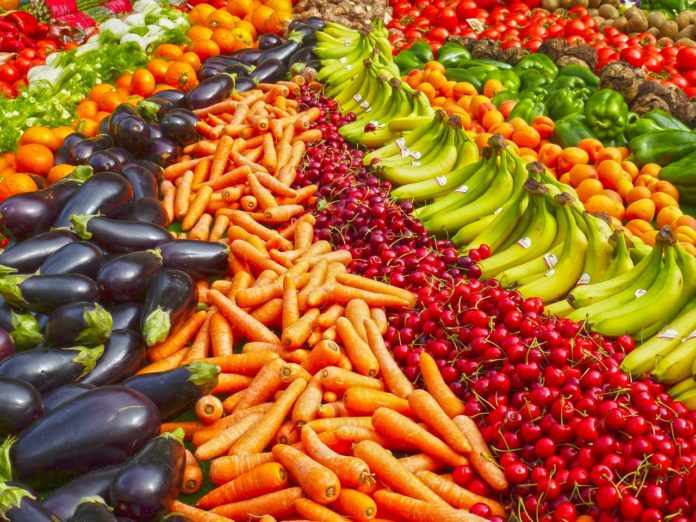Consuming partially hydrogenated oils will kill you, slowly, over time, but as surely as you breathe, they will…
Today after many years of research and billions of dollars spent, there is compelling evidence that a diet rich in fruits and vegetables can lower the risk of heart disease and stroke.
A study done as part of the Harvard-based Nurses’ Health Study and Health Professionals and its follow-up study included almost 110,000 men and women whose health and dietary habits were followed for 14 years.

The higher the average daily intake of fruits and vegetables, proved lower the chances of developing cardiovascular disease. Compared with those in the lowest category of fruit and vegetable intake (less than 1.5 servings a day), those who averaged 8 or more servings a day were 30% less likely to have had a heart attack or stroke.
Although all fruits and vegetables are likely contribute to these benefit, green leafy vegetables such as:
- lettuce, spinach, Swiss chard, and mustard greens.
- cruciferous vegetables such as broccoli, cauliflower, cabbage, Brussels sprouts, bok choy, and kale.
- citrus fruits such as oranges, lemons, limes, and grapefruit (and their juices)
Seem to make very important contributions to the health system.
Fruits and Vegetables, Blood Pressure, and Cholesterol
High blood pressure is a prevalent problem in the United States today as well as in many other counties. People with high blood pressure run a greater risk for heart disease and stroke. Controlling this condition is a very important factor to be able to achieve and maintain good health. Your nutritional regime can act as a very effective tool for lowering blood pressure thus keeping a healthy heart and nervous system.
The Dietary Approaches To Stop Hypertension (Dash) conducted a study which examined the effect on blood pressure of a diet that was rich in fruits, vegetables, and low-fat dairy products and that restricted the amount of saturated and total fat.
Researchers found that people with high blood pressure who had followed this nutritional approach reduced their systolic blood pressure (the upper number of a blood pressure reading) by about 11 mm Hg and their diastolic blood pressure (the lower number) by almost 6 mm Hg – This is as much as medications can achieve.
Junk foods… they will make you fat, cause long term illnesses and eventually and most certainly will KILL YOU
In the National Heart, Lung, and Blood Institute’s Family Heart Study, 4,466 subjects consumed between an average of a shade over 3 servings of fruits and vegetables a day to more than 4 servings a day.

Men and women with the highest daily consumption (more than 4 servings a day) had significantly lower levels of LDL (bad) cholesterol than those with lower consumption. How fruits and vegetables lower cholesterol is still something of a mystery.
Fruits, Vegetables, And Cancer
Studies to date have failed to make a link between cancer cure and a nutritional program filled with fruits and vegetables. Data from studies that follow large groups of initially healthy individuals for years have not shown that a nutritional regimen rich in fruits and vegetables prevents cancer in general.
Data from the Nurses’ Health Study and Health Professionals Follow-up Study support this finding. Over a 14-year period, men and women with the highest intake of fruits and vegetables (8+ servings a day) were just as likely to have developed cancer as those who ate the fewest daily servings (under 1.5).
©Copyright – Hector Sectzer

















